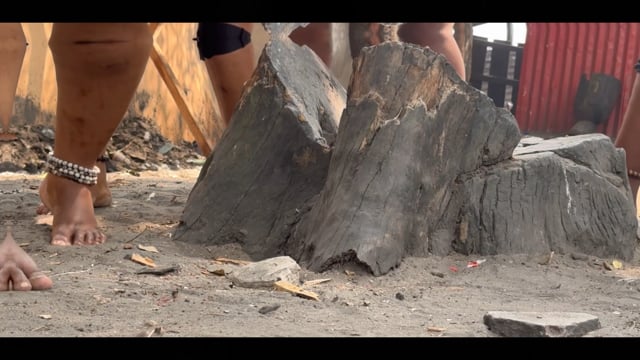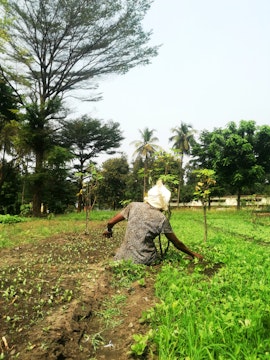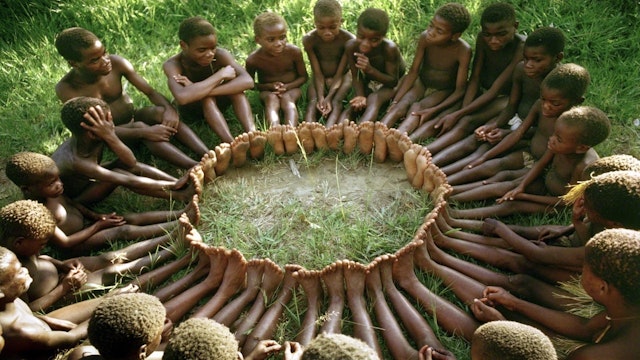Giving Survivors a Voice
Every year in Kinshasa, Democratic Republic of Congo, strange creatures roam the streets of the capital
Every year in Kinshasa, Democratic Republic of Congo, strange creatures roam the streets of the capital
These half-objects, half-humans, made of skilfully arranged garbage, appeal to our social and ecological conscience and question our way of living.
Women artists from the slums of Kinshasa are furiously inventive, creating extraordinary masks and costumes with the garbage littering the streets. These masks and costumes link them to the traditions of our ancestors. Today, they use them as weapons to denounce the misery and recklessness of young people indulging in the pollution of their environment, body and mind (drugs, alcohol, etc.).
These women activists give women the opportunity to redefine their gender roles or other imposed roles, by being women in action, rather than just women in the eyes of patriarchy, those who suffer without any decision-making power. Patriarchy, power imbalances, certain laws, policies and discriminatory social norms are all factors contributing to gender inequality and women's lack of economic autonomy in the DRCongo.
Sarah Ndele, a visual artist who takes part in this creative movement using waste materials, explains her creative process: “A partnership with major manufacturers of plastic products allows factories to send us their waste. We then re-manufacture them into a variety of creations.”
Our approach is both militant and ecological. From syringes to cans, car parts to vacuum cleaners, pharmaceutical packaging to old laptops, anything can be used to create a costume. These totem-like characters challenge our wasteful modernity. They inevitably provoke vivid reactions from passers-by, contributing to raising the awareness of Congolese citizens.
We're part of the Voice, the voice of thousands of people in Kinshasa.









